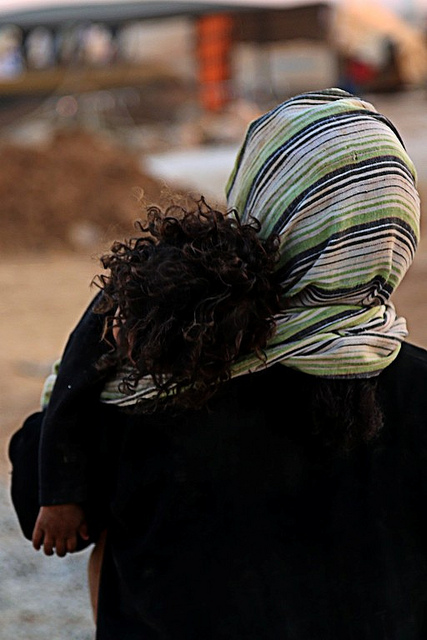Ty Butler, Senior CorrespondentInternational Development and Conflict
Last Modified: 23:59 p.m. DST, 26 August 2013
 LILONGWE, Malawi - Home to almost half of the world’s unused arable land, Sub-Saharan Africa has been characterized as a area of immense agricultural potential. The region though has traditionally experienced a fairly difficult time with its modern agricultural markets which have some of the lowest average yields per hectare of land in the world.
LILONGWE, Malawi - Home to almost half of the world’s unused arable land, Sub-Saharan Africa has been characterized as a area of immense agricultural potential. The region though has traditionally experienced a fairly difficult time with its modern agricultural markets which have some of the lowest average yields per hectare of land in the world.
Sub-Saharan agricultural markets face many challenges, from poor related institutions and neglect within government budgeting, to land degradation and population density pressures. These problematic agricultural settings have corresponded with similarly difficult hurdles in achieving food security for domestic populations.
Agricultural challenges can be especially pungent for landlocked countries which routinely face 50% higher than average transportation costs (affecting the prices of important inputs such as fertilizer and seeds), and often depend on the good governance of their neighbors.
In 2006, the small landlocked country of Malawi surprised many in the development community when it announced relative food independence after having doubled its maize output in only one year. In 2005 Malawi was heavily dependent on international food aid, a requirement to help feed almost half of its population. Seeking to change this, the country channeled significant funds into an agricultural subsidy program which targeted impoverished small plot farmers. These farmers were provided with coupons for fertilizer (an agricultural input which is generally two to six times more expensive in Sub-Saharan Africa than elsewhere in the world) and genetically modified seeds (which face similar pricing troubles).
The success of the Farm Input Subsidy Program (FISP) didn’t stop with the achieving of food independence. Continued agricultural growth not only cut domestic prices of maize by 50%, thus making it more affordable to buy, but also allowed Malawi to start exporting large amounts of maize to its neighbors in 2007.
Yet jumping forward to the present day, the Malawi Vulnerability Assessment Committee (MVAC) has warned of significant food insecurity affecting an estimated 1.5 million people within the country until March 2014 (the next projected maize harvest). So what happened to the surplus that Malawi had been enjoying? While growth rates due to the FISP have started to stagnate since 2010, the maize surplus still exists; with the country expecting to produce 194,000 metric tons more than is needed for domestic consumption.
Instead, current food insecurity problems stem from poverty coupled with unexpected shocks to maize production via failing rains which result in higher food prices. While the FISP has allowed Malawi to grow its agricultural output with amazing speed, it has also proven particularly vulnerable to seasonal weather shifts.
Given significantly slowing agricultural growth rates, revealed vulnerabilities, and continued food insecurity and malnourishment, the FISP has proven to be a relatively successful program, but not an end all solution for a healthy agricultural system within Malawi. Furthermore, the FISP eats up over half of Malawi’s agricultural budget which can prevent other important aspects of a long run solution from getting full funding and consideration.
Luckily, Malawi has devoted a lot of attention to its agricultural sector and has been laying the logistical, physical, and educational infrastructure for the construction of a more robust agricultural market. In an effort to address land grievances from its colonial past, Malawi managed to launch a willing seller willing buyer (WSWB) pilot program for land redistribution. The pilot performed even better than expected. Those partaking in the WSWB program (over 15,000 rural poor households) saw their average annual incomes increase by 40%, while the entire program netted impressive general economic rates of return to the tune of 20%.
1 Next Page » 2 3
Published: 27 August 2013
(Page 2 of 3)
Likewise, in 2002 Malawi identified a significant gap in human capital resources within its agricultural sector. With only 26 qualified land planners, 20 land valuation professionals, and a mere 12 licensed surveyors in the entire country, Malawi’s attempts at better land governance were hitting human capacity barriers and bottlenecks. The country has since implemented new training and education courses in order to increase its staff to roughly 1200 persons.
This expansion in human capital is critical as it serves as a foundation for all other agricultural programs. The continued success of the WSWB program depends on such infrastructure. In South Africa similar programs created to address disproportionate white ownership of farmland have netted poor returns and even poorer results.
Since 1994 the amount of farmland owned by white individuals (who make up only 10% of the total population) has only decreased from 80% to around 73%; indicating significant inequalities persisting in agricultural markets despite the end of Apartheid rule. This rather dramatically highlights the differences one can expect between programs that have strong foundations supporting them and those that do not.
Despite these positive steps they fail to address several significant issues that leave Malawi’s agricultural sector vulnerable. The largest single area for improvement rests perhaps with the obtaining of equal rights for women farmers. Women make up a majority of farmers within Sub-Saharan Africa (around 70-80% when non-commercial subsistence farming is accounted for) and Malawi is no different. While Malawi has fairly strong civil laws in place guaranteeing gender equality, civil law often fails to rule the day in Malawi’s rural farming communities.
The federal government acknowledges the existence of and legality of customary law within many rural communities resulting in 72% of all land falling under its jurisdiction. For most women, customary law equals the implementation of traditionally patriarchal norms for work behavior and land ownership. Thus, despite their immense importance within Malawian farming, women are often not allowed to own land for example, or engage in work activities such as plowing soil.
Customary laws are particularly harmful since they tend to reduce the average crop yield for women relative to men. Lack of land ownership reduces tenure security and thus investment into land in the form of conservation farming. Instead, the focus tends to shift towards short run payoffs at the cost of long run sustainability; if long run aspects of ownership are bleak, there is little incentive to plan for long run usage of the land.
Women tend to suffer barriers to credit markets as well. While formally they are welcome to it, lack of land rights often means that women have little to offer up as collateral which prevents them from being able to secure a loan. Even worse, women are often barred from even accessing credit markets in the first place either though movement restrictions, or, more commonly, though customary lending laws that prevent married women from applying for loans (they must instead take them out in their husband’s name) and may also socially discourage any woman from attempting to access credit in the first place.
This problem is compounded by the fact that much of Malawi’s lending sector is informal in nature, which makes them more susceptible to influences from traditional social norms. Without access to financial capital, women face challenges in hiring the needed male labor to do jobs customary law might prevent women from doing. It may also lessen (and routinely does) how much fertilizer women can afford to purchase and how large they can scale their operations.
1 2 Next Page » 3
Published: 27 August 2013
(Page 3 of 3)
Hindering women also hinders the part of the farming market that tends to be more favorably inclined to farming techniques that could help reduce vulnerabilities associated with FISP. Upon the conclusion of his extended trip to Malawi, the Special Rapporteur on the right to food Olivier De Schutter suggested the re-implementation of traditional legume farming practices alongside newer maize production in order to prevent soil nutrient depletion and improve nutrition through ready access to healthier and more diverse foods.
In Malawi, women tend to be more inclined to grow legumes as they, on average, tend to place a higher importance on household nutrition (a gender based generalization which statistically tends to be fairly accurate throughout the entire developing world). Similarly, women, despite the lack of legal incentive for conservation farming, still represent about 60% of Malawi’s farmers who are currently piloting new agroforestry technologies. The agroforestry pilot program in Malawi seeks to improve soil quality, resistance to drought, market diversity, food security, and nutrition by incorporating the growing of trees (often fruit bearing) alongside of, or interspersed with, commercial crops.
To realize greater equitable treatment for women customary laws will need to be addressed in one way or another. The role of customary laws is up for review by Malawi’s legislature, but the last series of agricultural bills failed to significantly improve women’s agency within rural areas. It may also prove difficult to force social change onto rural societies that might generally lack strong governmental reach. Instead, focusing extension service efforts on addressing the needs of female farmers and making an effort to inform them of their civil rights would allow them to better seek redress in the face of discriminatory customary laws.
Education and outreach programs can also be used to inform tribal leaders and local land committees on the importance of gender equality for communal health, productivity, and general well-being. It should not be assumed that just because these actors are the traditional bearers of customary law, that they would be strictly averse to altering it. This path would create ways for customary law to help empower women rather than restrict them while obtaining buy-in from essential local actors such as village elders. Such buy-in would afford more ownership of the process to the community which generally encourages higher levels of acceptance and participation within the process, ultimately leading to more socially sustainable change over time.
Outside of customary laws, the WSWB distribution campaign could be made to primarily target female headed households. Of those individuals who received land through the program, 95% also received formal land titles. Such titles would provide women much more legal security; protecting the land from external acquisition via customary law. Even allowing two name slots on titles would help secure ownership rights for women should their husbands die. Since rural households headed by women tend to be quite poor, a focus on gender equality coupled with the scaling up of successful pilot programs would help to address both food insecurity caused by poverty and encourage the behavioral change needed to shore up vulnerabilities within existing commercial farming techniques. Empowering women in Malawi means a stronger more sustainable domestic economy and a healthier society with full bellies.
Return to Page 1»
Follow Ty Butler on Twitter
Twitter: @nahmias_report
Senior Correspondent: @TywButler








 LILONGWE, Malawi - Home to almost half of the world’s unused arable land, Sub-Saharan Africa has been characterized as a area of immense agricultural potential. The region though has traditionally experienced a fairly difficult time with its modern agricultural markets which have some of the lowest average yields per hectare of land in the world.
LILONGWE, Malawi - Home to almost half of the world’s unused arable land, Sub-Saharan Africa has been characterized as a area of immense agricultural potential. The region though has traditionally experienced a fairly difficult time with its modern agricultural markets which have some of the lowest average yields per hectare of land in the world.





















































